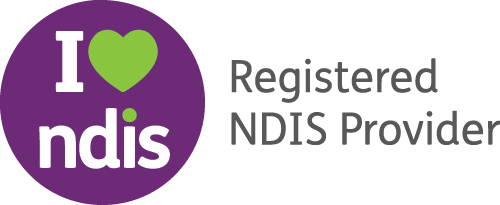Can the NDIS Fund an Assistance Dog? A Step-by-Step Guide for People with Complex Needs
For many people living with disability, especially those with psychosocial or complex needs, an assistance dog can be life-changing. These highly trained animals do far more than offer companionship; they help reduce anxiety, increase safety, and empower people to live with greater independence and confidence.
However, despite their value, obtaining an assistance dog through the NDIS isn’t straightforward. It involves specific requirements, thorough documentation, and a clear case that the dog is both reasonable and necessary for the participant’s unique disability needs.
In this guide, we’ll break down everything you need to know:
- What the NDIS considers an “assistance dog”
- When funding might be approved
- What’s usually covered (and what’s not)
- Steps to apply successfully
What Is an Assistance Dog Under the NDIS?
Not all dogs that help or provide comfort are considered assistance animals under the NDIS.
To be eligible for funding, the dog must be:
- Specifically trained to carry out tasks directly related to your disability
- Able to perform at least three support tasks that assist with daily functioning
- Trained to meet public access requirements (able to accompany you in public places safely)
- Supplied or trained by an
accredited provider, or meet your state or territory’s legal requirements for assistance animals
This means the NDIS will not fund emotional support animals, therapy dogs, or pets that have not been professionally trained to complete task-based supports.
What Types of Tasks Can Assistance Dogs Perform?
Assistance dogs are trained to meet a wide range of disability support needs. Common examples include:
For psychosocial or psychiatric disabilities:
- Interrupting harmful behaviours (e.g. self-harm, panic attacks)
- Creating space in crowded areas to reduce sensory overload
- Waking a person during night terrors
- Providing pressure therapy during anxiety episodes
- Supporting safer community access and mobility
For physical or neurological disabilities:
- Retrieving dropped items or medications
- Opening doors, pressing buttons, or turning on lights
- Alerting others in case of medical emergencies
- Supporting safe mobility or balance
Every assistance dog is trained to meet the individual needs of its owner, and these tasks must be clearly linked to the participant’s disability in the NDIS application.
Will the NDIS Approve Funding for an Assistance Dog?
The NDIS will only fund an assistance dog if it meets the following strict criteria:
1. Directly Related to Your Disability
The dog must help reduce or manage the impact of your disability, not simply provide comfort.
2. Supports Your NDIS Plan Goals
For example: building independence, improving mental health, and increasing community access.
3. Effective and Beneficial
There must be evidence that an assistance dog is a practical support for your needs, and that other supports have not worked as well.
4. Value for Money
NDIS planners compare the cost of the dog and its ongoing care to the cost of other supports (e.g. support workers or therapy).
5. Meets Safety and Welfare Standards
You must be able to care for the dog and manage its needs safely and effectively. The dog must also be safe for others and well-suited for public access.
If your application meets these requirements and is supported with strong evidence, you may be approved for funding.
What Can the NDIS Fund for Assistance Dogs?
If approved, the NDIS may fund:
- Assessment and matching services by an accredited provider
- The purchase or training of the assistance dog
- Training for you (the handler) to learn how to work with the dog
- Some travel or accommodation, if required, to complete training
- Limited ongoing support (maintenance training, specialised veterinary costs)
However, the NDIS does not fund:
- General pet costs (e.g. food, toys, basic vet care)
- Untrained dogs or informal therapy animals
- Breeding or early-stage training without a clear link to your disability
How to Apply for Assistance Dog Funding
To apply for NDIS funding, you’ll need a
transparent and evidence-based application. This includes:
1. A detailed letter or report from a specialist or allied health professional
- Outlining your disability
- Describing how the dog will support your daily life and goals
- Confirming that other support options have been tried or are less effective
2. A quote or support plan from an accredited assistance dog provider
- Including training details, timelines, and costs
3. Updated NDIS goals
- Make sure your plan reflects goals that align with the assistance dog’s role (e.g. increased independence, reduced use of support workers)
4. Supporting documentation about your capacity to care for the dog
- This might include a household support plan or help from informal carers
A Support Coordinator can play a key role in preparing and organising this application.
Common Reasons NDIS Applications for Dogs Are Declined
Even well-intentioned applications can be declined. Common reasons include:
- The dog is not trained or certified as an assistance animal
- The application is focused on emotional support, not task-based assistance
- There is not enough clinical evidence to show that the dog meets your disability needs
- The dog is seen as duplicating other supports in your plan
- There is no cost comparison or evidence of value for money
- The participant cannot demonstrate the ability to care for the dog over time
How Hand in Hand Support Coordination Can Help
At Hand in Hand, we support participants across Melbourne and regional Victoria with complex and psychosocial needs.
We can help you:
- Understand if an assistance dog is likely to be considered reasonable and necessary under your circumstances
- Connect you with accredited providers to obtain quotes and training information
- Work with your allied health professionals to build strong supporting evidence
- Coordinate your plan and documentation for NDIS reviews or appeals
- Advocate for your needs
in meetings with planners or LACs
We know how detailed and overwhelming the process can feel. Our job is to make it easier.
Final Thoughts
Assistance dogs can transform lives, but securing funding through the NDIS requires planning, accurate documentation, and a clear connection to your support needs.
At Hand in Hand Support Coordination, we specialise in supporting participants with complex mental health and physical disabilities across Melbourne and Victoria. Our team specialises in Level 2 and Level 3 Support Coordination, with a focus on tailoring services to your unique needs, goals, and budget.
With strong industry connections and a compassionate, participant-first approach, we work alongside you to navigate the NDIS, ensuring you receive the supports you deserve.

We hope this blog was useful.
Hand in Hand Support Coordination specialises in personalised NDIS Support Coordination for participants with complex mental health and physical disabilities across Melbourne and Victoria, focusing on Level 2 and 3 support to create tailored support that aligns with goals and budget.




